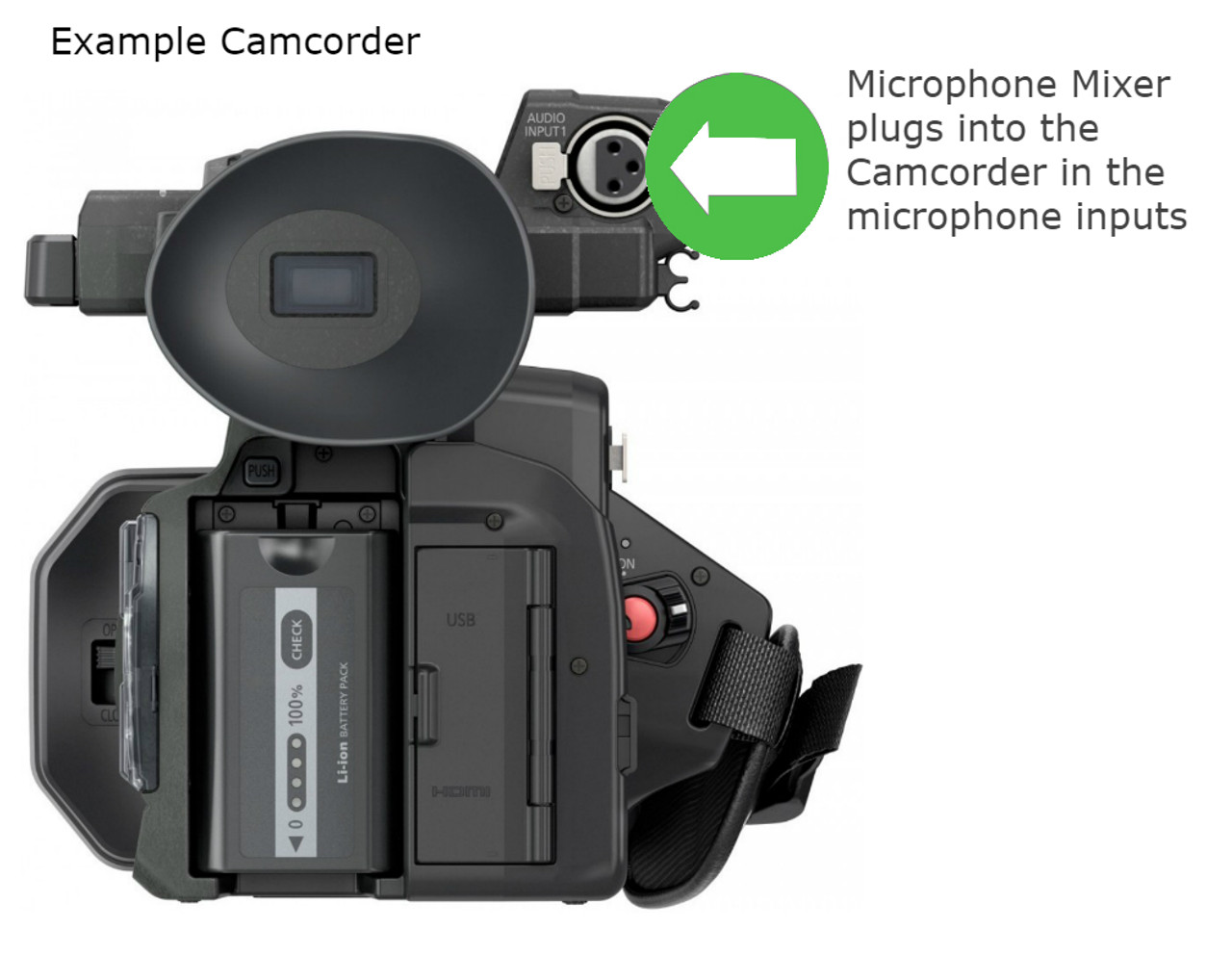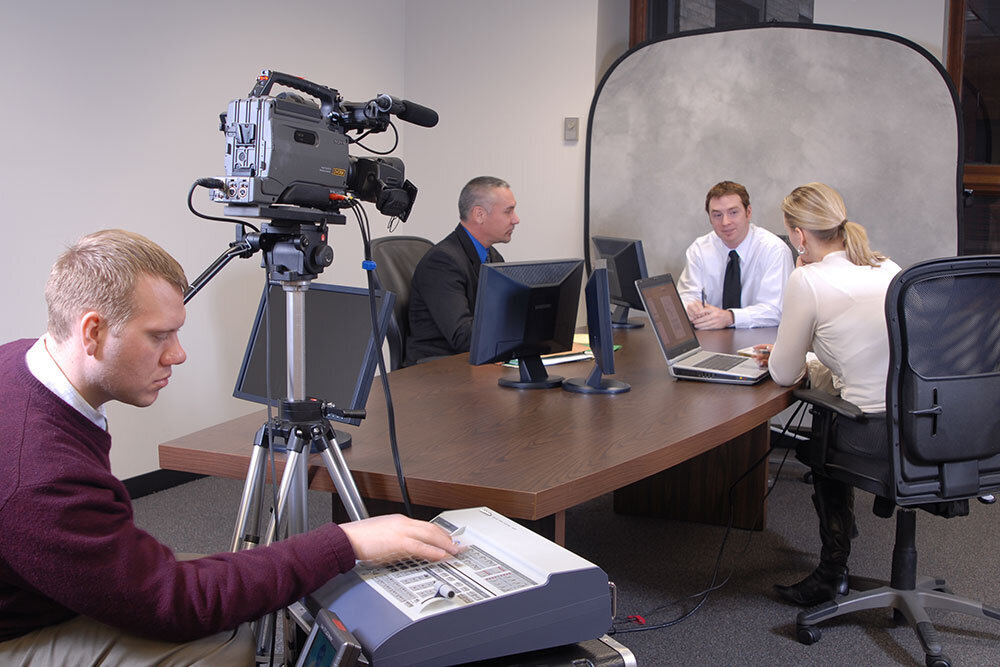The Importance of Lawful Video Clip Depositions in Modern Legal Services: What You Need to Know
Lawful video depositions have come to be vital in today's legal landscape. They provide a multidimensional view of witness testimonies that conventional records merely can not match. By catching both spoken and non-verbal communication, these depositions improve the total understanding of a witness's credibility. Nonetheless, the performance of video depositions hinges on various variables, consisting of compliance with lawful requirements and finest techniques (legal video depositions). Checking out these elements exposes their real importance in modern-day legal solutions
What Are Legal Video Clip Depositions?
Legal video depositions act as an important tool in the litigation process. They include videotaping witness statements in a video clip format, recording both spoken and non-verbal communication. This method enables lawyers to document the attitude, expressions, and reactions of witnesses, supplying a richer context for the testimony. Normally carried out in a controlled environment, these depositions are led by lawyers who ask concerns while a court press reporter records the dialogue. The resulting video can be essential for test prep work, as it makes it possible for lawyers to examine the reputation of witnesses and fine-tune their techniques. Additionally, lawful video depositions can be used in different legal contexts, varying from civil disputes to criminal instances. The aesthetic and auditory elements of video clip depositions improve the discussion of evidence, making it a vital part in the modern lawful landscape. In general, they add substantially to the efficiency and efficiency of lawful proceedings.

Benefits of Video Depositions Over Traditional Methods
Video clip depositions offer countless advantages contrasted to traditional approaches of taking witness statements. One significant benefit is the capability to record both audio and visual components, giving an extra thorough document of the witness's declarations. This double style boosts clarity and permits legal professionals to reference specific nuances during test prep work. In addition, video clip depositions assist in remote involvement, making it simpler for witnesses that might be unavailable for in-person looks as a result of geographical constraints or health issues.Moreover, video depositions can speed up the overall deposition procedure, reducing the moment and costs connected with traveling and logistics. They likewise boost access, as recorded depositions can be quickly shared amongst lawful teams and referenced any time. This convenience adds to far better case management and prep work. Overall, video clip depositions represent a modern, efficient technique to collecting witness testimonies, aligning with the progressing needs of the legal profession.
The Role of Body Language and Tone in Testimonies

In lawful video clip depositions, body movement and tone play vital roles in conveying a witness's reliability and trustworthiness. Nonverbal hints can give insights right into a witness's emotion, affecting how their testimony is viewed. Understanding the influence of these components is important for attorneys and jurors alike when evaluating the integrity of a statement.
Nonverbal Interaction Insights
While spoken interaction is commonly stressed in lawful statements, nonverbal hints such as body language and tone play an important duty in communicating reliability and feeling. Onlookers of depositions may keep in mind that a witness's stance, gestures, and faces can greatly influence perceptions of dependability. For example, constant eye get in touch with may indicate confidence, while avoiding gaze could recommend dishonesty or pain. Similarly, the tone of voice-- its rate, volume, and pitch-- can present feelings of sincerity or uncertainty. Legal professionals have to be attuned to these nonverbal signals, as they frequently provide crucial context that enhances talked words. Recognizing these nuances can boost the efficiency of depositions and affect the end result of legal process.
Emotional Tone Influence
The emotional tone shared during legal testaments greatly affects how a witness is regarded. Body language, singing inflections, and faces play essential duties in shaping the narrative of a testimony. A witness exhibiting confidence via steady eye get in touch with and a calm tone can impart a sense of dependability and engagement. Alternatively, indications of anxiousness, such as fidgeting or a shaky voice, may cause uncertainty concerning their account. The subtleties of psychological expression can affect the interpretation of facts, making it necessary for legal experts to acknowledge these signs. In video depositions, the visual and auditory components incorporate, emphasizing the value important source of emotional tone in sharing genuineness and truthfulness within the legal procedure.
Credibility and Dependability
A crucial factor in establishing reliability and credibility throughout testimonies depends on the witness's body movement and intonation. Viewers typically count on non-verbal cues-- such as eye call, pose, and motions-- to examine a witness's genuineness. A witness that preserves eye call and presents open body language may be viewed as even more reliable and straightforward than one that prevents eye get in touch with or shows up shut off. Additionally, intonation plays an important function; a stable, calm tone can reinforce the integrity of the testimony, while fluctuations in pitch or quantity may raise doubts. Inevitably, the combination of body movement and singing tone greatly affects how a witness's statements are obtained and translated in a lawful context.
Ideal Practices for Performing Video Depositions
Carrying out video depositions requires careful preparation and execution to guarantee a clear and effective discussion of testament. It is important to pick a silent, well-lit place to reduce distractions and protected optimum video high quality. The tools must be checked in development, including video cameras, microphones, and lighting, to avoid technological issues during the deposition.Next, parties included need to assess the format and procedures ahead of time, making certain that every person recognizes their duties. The deponent needs to be briefed on the procedure, including exactly how to react plainly and concisely.Additionally, keeping an expert demeanor throughout the session is crucial. This includes avoiding talking over each other and confirming that all questions are guided appropriately. It is vital to tape-record the deposition in a layout that enables for easy playback and testimonial, protecting the honesty of the statement for future usage.
Legal Factors To Consider and Compliance Issues
How do lawful factors to consider and conformity issues influence the efficiency of video depositions? Legal professionals must navigate a complicated landscape of guidelines, making sure that video depositions abide by jurisdictional rules and requirements. Conformity with laws concerning personal privacy, authorization, and taping methods is essential. For example, obtaining explicit consent from all events entailed is needed to stay clear of lawful repercussions.Additionally, the admissibility of video clip evidence in court can hinge on conformity with step-by-step needs. Guaranteeing that the devices utilized meets technical standards is also important, as low quality can undermine the deposition's reliability.Moreover, attorneys need to be conscious of any particular state regulations that control video clip depositions, as these can vary greatly. Failure to resolve these factors to consider can not only jeopardize the honesty of the deposition however also affect the general situation approach, inevitably impacting the client's legal results.
Just How Video Depositions Impact Court Understanding
While video clip depositions can serve as powerful devices in lawful proceedings, their impact on jury perception is substantial. The auditory and visual components of video recordings supply jurors with a more comprehensive understanding of witness attitude, reliability, and emotional actions. This multimedia method can enhance the jurors' capability to analyze the dependability of testament compared to conventional text-based transcripts.Moreover, video clip depositions allow jurors to observe body language, intonation, and face expressions, all of which can influence their interpretation of the witness's statements. The existence of a witness on display can humanize them, cultivating empathy and link, which might persuade jurors' viewpoints. On the other hand, a witness that shows up undependable or evasive on video clip might lead to adverse understandings that influence a jury's choice. Inevitably, the dynamic nature of video visit this site right here depositions plays an important role fit how jurors translate proof and reach their verdicts.
The Future of Video Depositions in Legal Method
As developments in modern technology proceed to reshape the lawful landscape, the read here future of video clip depositions is poised for substantial evolution. Advancements such as synthetic knowledge, online truth, and enhanced video conferencing tools are expected to simplify the deposition procedure and improve accessibility. Legal experts might utilize AI-driven analytics to examine witness reliability and case toughness extra effectively.Moreover, the assimilation of virtual reality could allow courts to experience immersive simulations of depositions, offering deeper context and understanding. In addition, the fad toward remote depositions is most likely to linger, using greater flexibility for customers and lawyers alike.As remote work comes to be significantly stabilized, video clip depositions will likely come to be standard practice, lowering costs and time restraints linked with standard approaches. In general, these technological innovations guarantee to boost the effectiveness, effectiveness, and accessibility of video depositions in lawful method, eventually transforming how lawyers plan for test.
Often Asked Inquiries
Just How Much Do Legal Video Depositions Usually Price?

Can Video Clip Depositions Be Made Use Of in Any Sort Of Case?
Video depositions can be utilized in numerous kinds of situations, consisting of civil, criminal, and household legislation. Their flexibility allows attorneys to existing witness testimonies efficiently, adjusting to the specific demands of different legal situations.
What Equipment Is Needed for a Video Clip Deposition?
To carry out a video deposition, vital equipment includes a high-grade camera, microphone, lighting, and a reputable recording tool. Additionally, a computer with editing and enhancing software might be required for post-production and formatting the last video.
How much time Does a Regular Video Clip Deposition Last?
A regular video deposition lasts in between 2 to four hours, depending upon the complexity of the situation and the number of concerns postured. Prolonged sessions may take place, yet breaks are normally incorporated for participant convenience.

Are Video Clip Depositions Admissible in Court?
Video clip depositions are normally permissible in court, provided they abide by lawful criteria and guidelines of proof. Their usage improves clearness and protects witness testimony, helping in the judicial procedure during hearings and tests. Lawful video depositions have ended up being essential in today's lawful landscape. Furthermore, lawful video depositions can be made use of in various lawful contexts, ranging from civil disagreements to criminal cases. Additionally, video depositions assist in remote participation, making it less complicated for witnesses who may be not available for in-person looks due to geographical restrictions or health issues.Moreover, video clip depositions can accelerate the overall deposition procedure, reducing the time and expenses associated with traveling and logistics. Making certain that the tools utilized meets technical standards is likewise vital, as poor quality can threaten the deposition's reliability.Moreover, lawyers must be mindful of any type of particular state legislations that regulate video clip depositions, as these can differ substantially. In addition, the fad towards remote depositions is likely to continue, offering higher flexibility for customers and lawyers alike.As remote work becomes progressively stabilized, video clip depositions will likely become standard practice, lowering prices and time constraints associated with standard methods.
Comments on “How legal video depositions help in reaching favorable settlements”